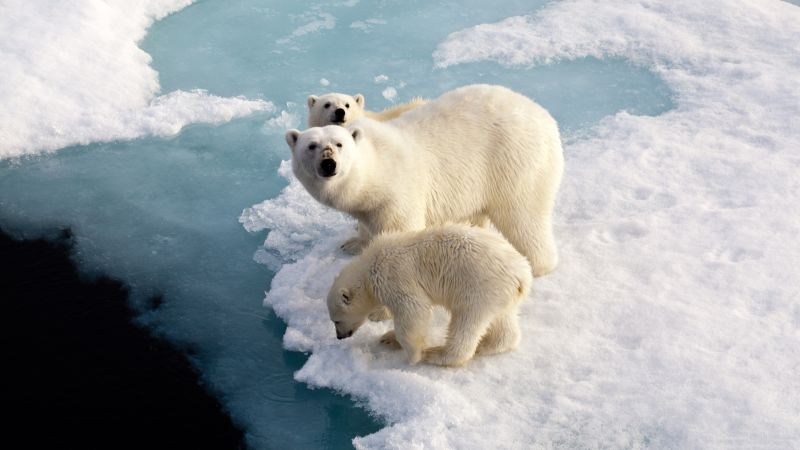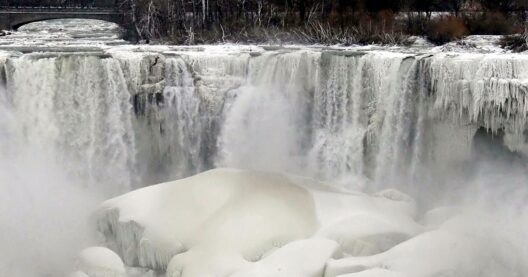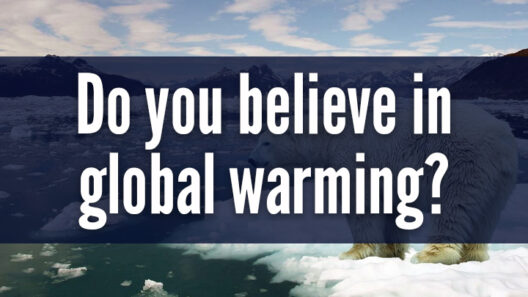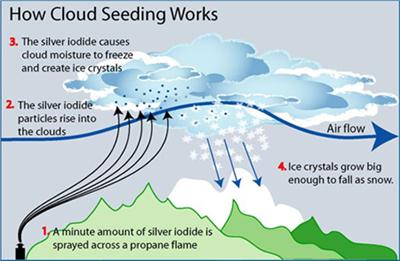The phenomenon of climate change engenders a profound urgency within the global community, calling individuals and governments alike to grapple with its latent dangers. The notion of reaching a point of no return—when climate change becomes irreversible—is of paramount import in this discourse. Understanding when we cross this threshold is crucial to instilling a collective consciousness poised for action. This article delves into the intricacies surrounding the tipping points of climate change, the mechanisms behind them, and the dire implications they hold for both current and future generations.
The concept of “irreversibility” in climate change refers to alterations in the Earth’s climate system that, once established, cannot easily be undone. These alterations stem from various factors, including increased greenhouse gas emissions, deforestation, and widespread industrial activities. Each of these factors contributes to the warming of the planet, leading to cascading effects that can transform ecosystems permanently.
One of the crucial tipping points in the climate system is the melting of polar ice, particularly in Greenland and Antarctica. The loss of ice significantly contributes to rising sea levels, affecting coastal communities worldwide. If the current trend of ice melt continues, we could witness an irrevocable transition towards a warmer ocean, which in turn affects global weather patterns. This catastrophic shift could lead to more extreme weather, such as intensified hurricanes and prolonged droughts. Without immediate action, the consequences will become etched in our climate narrative, impossible to reverse.
Another critical facet of climate change irreversibility lies in the permafrost regions of the Arctic. As global temperatures rise, permafrost—frozen soil that has remained below the freezing point for two consecutive years—begins to thaw. This thawing releases significant quantities of methane, a potent greenhouse gas that exacerbates climate change. The process follows a feedback loop; as methane is emitted, atmospheric temperatures rise further, causing additional permafrost to thaw. Scientists voice concern that reaching a threshold for permafrost thawing could accelerate warming, leading humanity towards a cataclysmic trajectory.
In examining forests, we find yet another critical pivot in the climate crisis. Deforestation and forest degradation not only enhance carbon emissions but can also shift forests from being carbon sinks to carbon sources. For instance, the Amazon rainforests—often dubbed the ‘lungs of the Earth’—are approaching the brink of a tipping point. If deforestation continues unabated, it could transition from a lush ecosystem that absorbs carbon to a depleted region that contributes to carbon emissions. This transformation would further entrench atmospheric carbon, steering us towards irreversible climate damage.
Species extinction is another indicator of climate change’s irreversible nature. As habitats shift or collapse due to relentless temperature increases, many species find themselves unable to adapt swiftly enough. The extinction of these species removes biodiversity that compounds climate resilience, leading to ecosystems that are less adaptable to changes. The loss of one species can create a domino effect, causing shifts in food webs and disrupting the balance necessary for ecosystem survival—yielding a clear illustration of how interlinked and fragile our planet’s systems truly are.
In a broader context, reaching the point of no return in climate change extends beyond environmental degradation; it encompasses socio-economic ramifications as well. Low-lying coastal regions, for instance, will face increased flooding from both rising sea levels and storm surges. This displacement of populations could generate climate refugees, prompting geopolitical conflicts and straining international relations. Countries may find themselves embroiled in disputes over dwindling resources, as the impacts of climate change reshape economic landscapes. The societal upheaval reflects the intertwining of ecological and economic health, reinforcing the imperative for unified global action against climate change.
From an academic perspective, scientists emphasize the importance of reducing global greenhouse gas emissions to mitigate the risks of approaching irreversible climate change. The Intergovernmental Panel on Climate Change (IPCC) has identified specific carbon thresholds that, if surpassed, could lead to socially and ecologically catastrophic changes. By listening to these warnings and implementing policies to drastically cut emissions, society has a chance to avoid breaching these critical limits.
Promisingly, a paradigm shift appears to be on the horizon. Increasing public awareness and activism surrounding climate change is galvanizing necessary action. Individuals and grassroots organizations are advocating for legislation and sustainable practices that prioritize ecological well-being. This burgeoning movement underscores the possibility of effecting change, fostering hope that the point of no return can be avoided.
The necessity for a collaborative approach to address climate change is unequivocal. Multinational agreements, such as the Paris Agreement, are essential instruments in uniting nations in a common goal: limiting global warming to well below 2 degrees Celsius. This collaborative ethos reflects a shared understanding that mitigating climate change requires collective commitment and sacrifice. Time is waning; the window for preventing irreversible climate change is closing. It beckons humanity to respond decisively.
Ultimately, recognizing the boundaries of climate change irreversibility impels us to reassess our relationship with the planet. It is crucial to comprehend that the actions taken today are inextricably linked to future ecological stability. The imperative remains: engage in meaningful dialogue, implement sustainable practices, and advocate for ambitious climate policy to ensure that we do not approach the point of no return. The future hinges on our choices, and it is within our collective power to reshape the narrative of climate change towards a more sustainable and equitable outcome.








